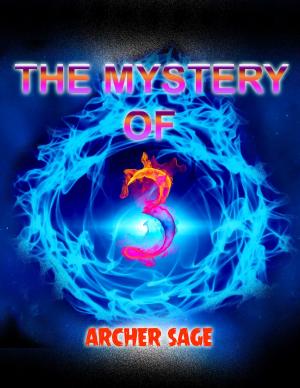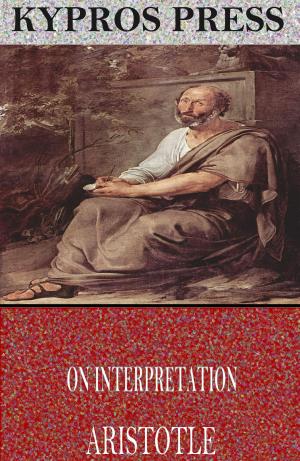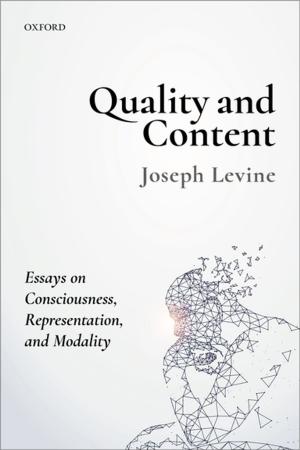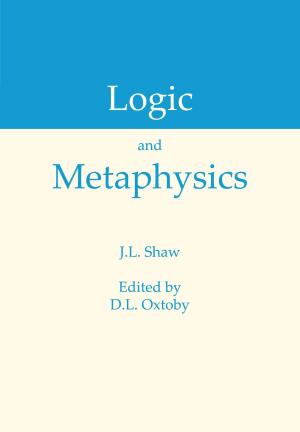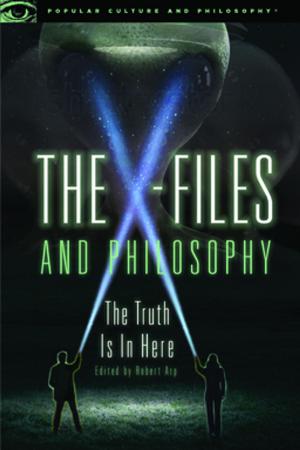Man and the Divine: New Light on Man's Ancient Engagement with God and the History of Thought
Nonfiction, Religion & Spirituality, Reference, Antiquities & Archaeology, Philosophy, Metaphysics| Author: | Thomas Yaeger | ISBN: | 9780463665473 |
| Publisher: | Thomas Yaeger | Publication: | August 12, 2018 |
| Imprint: | Smashwords Edition | Language: | English |
| Author: | Thomas Yaeger |
| ISBN: | 9780463665473 |
| Publisher: | Thomas Yaeger |
| Publication: | August 12, 2018 |
| Imprint: | Smashwords Edition |
| Language: | English |
This is my second collection of essays on philosophy and ancient history. Like my first collection, 'Understanding Ancient Thought', it expands further on the arguments of 'The Sacred History of Being', which appeared in November 2015. A theme of my work is that abstract philosophical thought was a key component in the development of ancient Divine cult.
Many of the essays deal with the question of esoteric knowledge in antiquity, often from slightly different angles. ‘The Death of Socrates’ is one of those, ‘Distinguishing Belief and Faith’ began as a meditation on some text by Alan Watts, but which expanded into a chapter about who believed what, and why, in ancient Mesopotamia. ‘Polytheism, Monotheism, and the Cult of the Aten’, explores Akhenaten’s religious innovations in the Egypt of the 14th century B.C.E.
Modern scholarship generally steers away from the idea that there may be an esoteric level to the nature of reality, but instead approaches questions surrounding esotericism in terms of a division between those who argue that there is such an esoteric level of reality, and those who maintain that just because it is possible for us to think of such a thing and give it names and descriptions, does not mean that there is genuine esoteric reality. The first group are sometimes described as ‘Essentialists’, and the second, as ‘Nominalists’. J.G. Frazer simply denied the idea that it was possible to say anything meaningful at all about a transcendent reality (Being), and consequently argued that such ideas are built on a fundamental error, through the conversion of an epistemology into an ontology.
There is also some discussion in the book of atheism, ancient and modern. It is argued that atheism is impossible outside the rather narrow way in which the question is discussed by scholars and theologians in the West. It is also argued that modern atheism is actually dependent on a number of the preconceptions found in the modern ontological argument.
The final essay, ’Stone Circles, Phenomenology, and the Neolithic Mind’, is necessarily more speculative than the others, and deals with the British Neolithic and Early Bronze Age, when the building of megalithic structures was at its height. It makes comparisons with Greek and Mesopotamian notions of the importance of the sky in ancient religious thought.
This is my second collection of essays on philosophy and ancient history. Like my first collection, 'Understanding Ancient Thought', it expands further on the arguments of 'The Sacred History of Being', which appeared in November 2015. A theme of my work is that abstract philosophical thought was a key component in the development of ancient Divine cult.
Many of the essays deal with the question of esoteric knowledge in antiquity, often from slightly different angles. ‘The Death of Socrates’ is one of those, ‘Distinguishing Belief and Faith’ began as a meditation on some text by Alan Watts, but which expanded into a chapter about who believed what, and why, in ancient Mesopotamia. ‘Polytheism, Monotheism, and the Cult of the Aten’, explores Akhenaten’s religious innovations in the Egypt of the 14th century B.C.E.
Modern scholarship generally steers away from the idea that there may be an esoteric level to the nature of reality, but instead approaches questions surrounding esotericism in terms of a division between those who argue that there is such an esoteric level of reality, and those who maintain that just because it is possible for us to think of such a thing and give it names and descriptions, does not mean that there is genuine esoteric reality. The first group are sometimes described as ‘Essentialists’, and the second, as ‘Nominalists’. J.G. Frazer simply denied the idea that it was possible to say anything meaningful at all about a transcendent reality (Being), and consequently argued that such ideas are built on a fundamental error, through the conversion of an epistemology into an ontology.
There is also some discussion in the book of atheism, ancient and modern. It is argued that atheism is impossible outside the rather narrow way in which the question is discussed by scholars and theologians in the West. It is also argued that modern atheism is actually dependent on a number of the preconceptions found in the modern ontological argument.
The final essay, ’Stone Circles, Phenomenology, and the Neolithic Mind’, is necessarily more speculative than the others, and deals with the British Neolithic and Early Bronze Age, when the building of megalithic structures was at its height. It makes comparisons with Greek and Mesopotamian notions of the importance of the sky in ancient religious thought.



